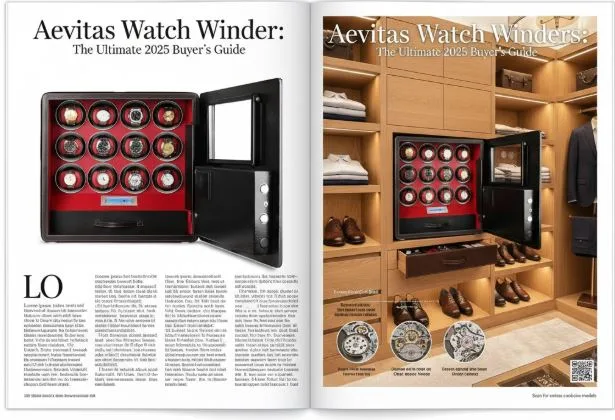Maximizing Comfort and Savings with Modern Home Upgrades
Windows are more than just portals to the outside world; they play a crucial role in energy efficiency, comfort, and overall home aesthetics. As energy costs rise and homeowners seek ways to reduce their environmental footprint, energy efficient windows have become an essential investment. These windows not only lower utility bills but also improve indoor comfort, enhance security, and increase property value.
Understanding the benefits, materials, styles, and installation techniques for modern windows ensures homeowners make informed decisions that deliver long-term results.
The Importance of Energy Efficient Windows
Traditional windows often allow unwanted heat transfer, resulting in higher heating and cooling costs. Single-pane or poorly insulated windows contribute to drafts, uneven temperatures, and higher energy consumption. Upgrading to energy efficient windows addresses these issues by reducing thermal exchange and providing a barrier against external weather conditions.
In addition to cost savings, these windows contribute to environmental sustainability by lowering the overall energy demand of a home. They help maintain consistent indoor temperatures, making living spaces more comfortable while reducing the reliance on heating and cooling systems.
Materials and Construction
Modern energy efficient windows are available in a variety of materials, each offering unique benefits:
- Vinyl Frames: Vinyl is popular due to its low maintenance, durability, and affordability. It resists warping, corrosion, and fading, providing long-lasting performance. Vinyl frames can include multi-chamber designs to enhance insulation.
- Wood Frames: Wood provides natural insulation and a classic aesthetic. Engineered or treated wood resists moisture and warping while maintaining excellent thermal performance. Wood can be combined with modern cladding for added durability.
- Aluminum Frames with Thermal Breaks: Aluminum is strong and lightweight, and when equipped with thermal breaks, it prevents heat transfer, improving energy efficiency without sacrificing durability.
- Fiberglass and Composite Frames: Fiberglass expands and contracts minimally, providing excellent insulation. Composite materials combine the best properties of multiple materials, offering stability, durability, and low maintenance.
Glazing Options for Efficiency
The glass component of a window significantly affects energy performance. Common options include:
- Double or Triple Pane Glass: Multiple layers of glass with sealed air or gas-filled spaces reduce heat transfer and improve insulation.
- Low-E Coatings: Low-emissivity coatings reflect infrared heat while allowing natural light, reducing unwanted solar heat gain in the summer and heat loss in the winter.
- Gas Fills: Argon or krypton gas fills between panes provide additional insulation, reducing thermal conductivity.
These technologies combine to make energy efficient windows highly effective at controlling indoor climate, lowering energy costs, and improving comfort.
Benefits Beyond Energy Savings
While reducing heating and cooling costs is the primary advantage, modern windows offer a host of additional benefits:
- Enhanced Comfort: Well-insulated windows eliminate drafts and cold spots, maintaining a consistent indoor temperature.
- Noise Reduction: Multi-pane windows and insulating gas layers reduce outside noise, creating a quieter indoor environment.
- Improved Security: Modern windows often feature reinforced frames, multi-point locks, and shatter-resistant glass, enhancing home security.
- Aesthetic Appeal: From sleek modern designs to classic wood finishes, energy efficient windows improve both interior and exterior aesthetics, enhancing property value.
Installation Best Practices
Proper installation is crucial for maximizing the performance of energy efficient windows. Even high-quality windows can underperform if not installed correctly. Key considerations include:
- Accurate measurements to ensure a perfect fit
- Proper sealing and insulation to prevent air leakage
- Correct alignment of hardware and locks for functionality and security
- Inspection and repair of surrounding structures, such as sills or frames, before installation
Professional installation ensures that windows achieve optimal energy performance and maintain durability for years to come.
Cost Considerations and ROI
Although energy efficient windows may have higher upfront costs compared to standard windows, the long-term savings and increased property value often justify the investment. Reduced heating and cooling bills, improved comfort, and enhanced home aesthetics all contribute to a positive return on investment.
Energy efficiency certifications, such as ENERGY STAR ratings, help homeowners identify products that meet strict performance standards. Over time, these windows pay for themselves through lower energy bills and reduced maintenance costs.
Maintenance and Longevity
Energy efficient windows require minimal maintenance compared to older or poorly constructed windows. Vinyl, fiberglass, and composite frames resist warping and corrosion, while wood frames can be treated to prevent moisture damage. Routine cleaning of glass and frames, along with inspection of seals and hardware, ensures optimal performance and longevity.
Maintaining these windows properly can extend their lifespan for decades, providing consistent energy savings and comfort throughout their use.
Sustainability and Eco-Friendly Options
Energy efficient windows are a key component of sustainable home design. By reducing energy consumption, they help lower greenhouse gas emissions and support environmental responsibility. Many modern windows are manufactured using recycled materials or sustainable practices, further reducing their ecological footprint.
Homeowners committed to sustainability benefit from reduced energy costs, improved indoor air quality, and environmentally responsible building practices.
Smart Technology Integration
The next generation of energy efficient windows incorporates smart technology. Automated blinds, sensors, and integrated systems allow homeowners to monitor sunlight, temperature, and ventilation. Some windows even adjust tint automatically to reduce glare or heat gain, optimizing energy efficiency without manual intervention.
Smart features enhance convenience, security, and overall home performance, aligning with modern lifestyles that value both technology and sustainability.
Conclusion: A Strategic Home Upgrade
Investing in energy efficient windows in Mt.Lebanon is a strategic decision for homeowners seeking comfort, cost savings, and long-term property value. Modern windows offer superior insulation, noise reduction, enhanced security, and aesthetic appeal, making them one of the most effective home upgrades available.
Through careful material selection, glazing options, professional installation, and proper maintenance, homeowners can enjoy decades of improved comfort and energy efficiency. These windows represent a smart, eco-friendly investment that benefits both the home and the environment.
Ultimately, replacing outdated windows with energy efficient models transforms a home into a more comfortable, secure, and sustainable living space. The combination of modern technology, thoughtful design, and long-term performance ensures that this upgrade delivers tangible results for years to come.




